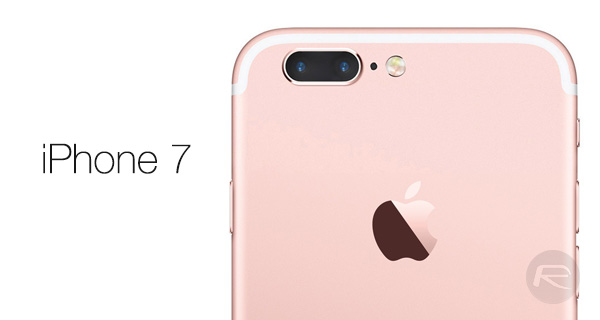Those tired of Apple’s instance on offering base model iPhones with just 16GB of memory will be pleased to learn that there are new claims that the iPhone 7 will see a change in tact from the company, with 32GB set to become the lowest possible configuration for a new iPhone.
The claim, which was made by Kevin Wang, director of Market Surveys section of IHS Technology, would see Apple ditching its entry-level 16GB memory configuration for the first time on a flagship release, with 32GB being a much more reasonable amount of storage with which to expect civilized human beings to manage. The claim also quotes a 2GB RAM for the future iPhone lineup.

To put things into perspective. Apple’s current iPhone 6s ships in 16GB, 64GB and 128GB models, with many calling for Apple to remove the 16GB option in favor of a 32GB base model. 16GB is considered to be unworkable for even the least demanding of users, with iOS updates alone often requiring some people to delete apps and data before the update can commence.
Seeing as storage prices are so low these days, Apple’s reluctance to increase the storage available for buyers of the lowest-capacity iPhones is disappointing, to say the least.
With that in mind, it’s possible Apple will up that minimum specification to 32GB, adding a whole new tier to the high-end. If that is indeed the case, 32GB, 128GB and 256GB options may be available with the iPhone 7, though this is just guesswork at this point. The more storage, the better, as far as we’re concerned, and while a microSD card slot would fix a lot of this in one fell swoop, we don’t expect to see an iPhone with an external storage slot any time soon.

So, we’re left hoping these latest rumors turn out to be accurate, then.
(Source: HDBlog [Google Translate])
You may also like to check out:
- Accessory Makers Already Showcasing iPhone 7 Lightning-To-3.5mm Headphone Adapters
- Alleged iPhone 7 Leaked Photos Show Apple’s Next Flagship With A Mysterious Hole On The Back
- Photo Of iPhone 7 Dummy Shows Clean Back With No Antenna Lines, Flush Camera, More
You can follow us on Twitter, add us to your circle on Google+ or like our Facebook page to keep yourself updated on all the latest from Microsoft, Google, Apple and the Web.

